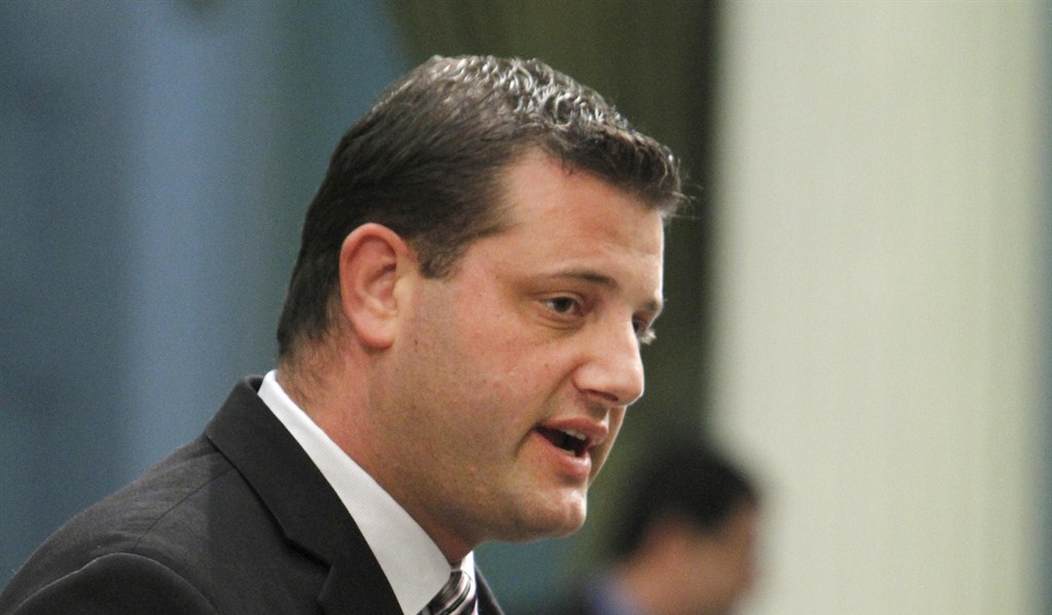Technically 219, but with the one pledged seat in CO-3, Republicans have hit 220 House seats in the next session of Congress. The painfully slow count in California finally accelerated in one district, the 22rd, representing Bakersfield and its environs. Incumbent Republican David Valadao edged out Democrat challenger Rudy Salas as almost all of the outstanding ballots got tallied.
Well … kinda edged out:
Republican U.S. Rep. David Valadao has defeated Democrat Rudy Salas in a Central Valley district, overcoming a strong Democratic registration advantage and fallout from his vote to impeach then-President Donald Trump.
With 98% of the ballots counted Monday night, Valadao had 52% of the votes to 48% for Salas, or a margin of about 4,500 votes.
Four points and 4500 votes isn’t all that close of a race for a House seat. So why did it take so long to make the call? Presumably, analysts figured that enough mail-in ballots from the newly redrawn district — which went from an R+6 to a majority-Dem seat in the new map — would benefit Salas. In the end, though, it didn’t help enough, not even after waiting almost two full weeks after Election Day to finally close out the mail collection and count the rest of the ballots.
Valadao’s win was notable for another reason — he was one of the few Republicans who held onto a seat in Congress after voting to impeach Donald Trump. Dan Newhouse was the only other member of Congress, and Lisa Murkowski appears in range of winning her Senate seat in Alaska’s ranked-choice voting system, although Trump-endorsed Kelly Tshibaka is still close enough to pull it off:
U.S. Sen. Lisa Murkowski, a moderate Republican who was censured by the Alaska Republican Party, pulled ahead of her right-wing opponent Kelly Tshibaka in the number of first-choice votes, with late-counted absentee and early votes breaking in her favor. The incumbent is on track to win reelection when ranked choice votes are tabulated by the Division of Elections on Wednesday afternoon.
Murkowski had more than 43% of first-choice votes with nearly 265,000 ballots counted Friday night. Tshibaka, who was endorsed by the Alaska Republican Party and former President Donald Trump, had under 43%, trailing Murkowski by more than 1,600 votes.
Democrat Pat Chesbro only got 10.3% of the vote, which is particularly poor given that Mary Peltola got nearly 49% of the vote for Alaska’s at-large House seat on the same ballot. This means Chesbro drops out of running and will have her 27,000 or so votes reallocated to the second choice on those ballots. Those will presumably favor Murkowski, likely by a wide margin, which means she’s likely to win her seat.
As for Peltola, she’s all but won that race too. Nick Begich and Libertarian Chris Bye will drop out and their collective 65,700 votes will go to voters’ second choice. Peltola only needs less than 3500 of those to get to 50%+1. The only reason media outlets haven’t called this race is because of the RCV process, but it’s pro forma at this point, much more so than in Alaska’s Senate race.
So where does this put the GOP? Officially-ish, they have 219 seats, but don’t forget that Adam Frisch has already conceded CO-3 to Lauren Boebert. Media tallies haven’t counted that, as they will wait for the statutorily required recount to confirm the outcome. No one expects the Colorado vote system to have that much variance, though, not even Frisch or the state’s Democrats.
Counting Boebert’s seat, that puts the current seat count at 220-212 with three races still left to finish. Peltola’s is one and that will go to Democrats, so give them 213. Republicans lead the other two, both in California. For some reason, only 71% of the vote has been counted so far in Sierra Nevada’s CA-3, but Republican Kevin Kiley leads Democrat Kermit Jones by over 10,000 votes and nearly five percentage points. There’s no explanation for why over a quarter of the vote has yet to be counted, so there’s no way to know when this race will finish.
They are much closer to the end in Central Valley’s CA-13, but so is the race. John Duarte has a razor-thin lead of 865 votes over Democrat Adam Gray with 95% of the vote counted. That hasn’t changed since Friday, however. When will the last 5% get counted? Who knows?
For now, the GOP has a seven-seat cushion at 220-213. If they lose the rest of the races, it will only narrow down to a five-seat cushion at 220-215, but it’s far more likely to get to at least 221-214 in the final count and might even finish at 222-213. If so, that would mirror Nancy Pelosi’s House majority in this session. Any of these combos would make party-flipping a pointless exercise, even for new members elected in Biden-supporting districts in New York, and even if they were inclined to do so at all. It’s still narrow enough to make a mess for whomever gets elected as Speaker, but it’s also wide enough to ensure that Republicans can force an end to Joe Biden’s agenda for the next two years and make him negotiate. And while that’s not nearly what could have been possible in this election cycle, it’s still sufficient.








Join the conversation as a VIP Member